What makes for good copywriting?
I revere the New York Times. I don’t just love it. I don’t just read it. I dive in and put my head under the waters of its lustrous journalism and make bubbly noises of delight. I voraciously devour articles about a diverse range of subjects from business to science, to space and human rights. The reason for my unquenchable desire for the NYT is not just because I find it the most moreish writing on my daily reading round, it’s because I find myself somehow emerging a better person on the other side.
This is what all good copywriting should do.
Some time ago I was asked to weigh in on an article provocatively titled What has happened to the copywriter? I thoroughly enjoyed my indignant outrage that this question had even been posed and I’m pretty confident I made valid points. The argument has only become hotter two years later. Educational institutions seem to be doing one of two things in 2018 – offering cheap and nasty 3-hour online digital copywriting primers (which kill my soul a little bit every time one pops up in my Facebook feed) or quietly shutting down their copywriting programmes with troubling ease. On the other side of this increasingly problematic equation is a massive industry of business mavens and content creationists clamouring for copywriters. I know this because as the copywriting lecturer at my own fine institution, I am often the one being clamoured at. Even in pizza restaurants in Woodstock where I haplessly ventured for dinner with my family. So here I say, off the back of all of this noise, I get it. I absolutely get it. And I, very gratefully, do not work for one of the institutions that thinks copywriting is the poor and unprofitable cousin of journalism and has no place in a business school.
Communication IS business.
Even if you’re just writing a newsletter once a month, or a necessarily persuasive email to a recalcitrant client (and who hasn’t?), eventually you’re going to have to write.
Jennigay Coetzer laid this out rather neatly in a recent article on BizCommunity. One of my favourite writing pastimes is rebuttal. I’ll argue with anyone, often with the sole intention of fine tuning my ability to communicate. The only rule is that if I make the recipient angry, I have lost. If this sounds like a pointless exercise I’d be happy to show you how many accounts I’ve rescued with a carefully worded email, how many people I’ve talked off a ledge and how many unpaid invoices (and tempers) I’ve settled without rancour simply by writing to people.
Say it simply or say it not.
Stephen King is one of my four favourite writers of all time. If you haven’t read his seminal book On Writing, do so immediately. He said: “Kill your darlings, even when it breaks your egocentric little scribbler’s heart, kill your darlings.”
Copywriters have a black belt in brevity. We know how to get to the point without blithering away into the deathly doldrums of what used to be a salient point. It’s the way we think.
Make people feel things.
Not just nice things either. I was once asked to write a speech for the prominent CEO of an international pharmaceutical company in my position as senior medical copywriter in London. This was not an easy task. The CEO in question was a terribly smart doctor type who had rather tenuous people skills, and the speech was him telling his staff that two huge companies were merging and many of them would be changing, or losing, their jobs. My own boss wisely put the copywriter on the job because she was also terribly smart, and the speech was crafted and delivered without bloodshed. Somewhat miraculously, people left that conference with hope and uncertain optimism, rather than with resentment and murder in their eyes. Copywriting, digtal copywriting or even website copywriting, demands critical thought, the ability to formulate an argument based on both fact and feeling, without sacrificing either, and marries it to the skill of putting that into words.
When you have to explain difficult things, whether it’s a medical trial abstract or the prospect of retrenchment, ask the copywriter to do it.
“If you don’t have the time to read, you don’t have the time to write.”
Another Stephen King pearl. Good copywriters read and write in equal measure. What you read should be everything (and must include The Economist). And what you write doesn’t have to be the next great novel or the headline of headlines either. My other secret passion is Quora. Answering other people’s questions is a terrific way to get your writing on. It’s one of those warm human quirks to have the answers when somebody asks.
Talk to people
Curiosity never killed a copywriter.
Often we’re a pain in the proverbial like that. All the questions, all the time. I’m not talking about lofty intellectual discourses either. Ordinary stuff is much more illuminating. By far our best resource for insight and information is other people. A recent (yes) New York Times article I loved was about the importance of small talk.
“You may not find out where they work, or who they know, or how their relationship is with their family, but you’ll get some idea of that odd-shaped part of a human being that’s invisible to the eye and impossible to articulate.” Maeve Higgins, NYT, Aug 3 2018
Copywriters are no longer relegated to the Ad Box
Yes, copywriters have historically found their greatest space in advertising. Not any more. That is now just one space in which to find them. If you want to employ a Chief Content Officer, that person will probably have at least one of their feet in copywriting. If you want a ninja digital content specialist with analytics super skills, find yourself a copywriter. If you want blogs written, podcasts made, internet radio that blazes down the fibre airways, or business gurus with strategic creative thinking abilities Lee Iacocca would sell his soul for, find yourself a copywriter. Don’t be fooled by the name. It’s only a word after all.
Find your pride
Let me tell you about Google Docs. Before I wrote this article, my version did not know what a copywriter was:
I have added it now. With no small amount of pride. As copywriters, we must be like lions. Lions don’t wait to be asked if they are a lion. They roar and assert this across the world like Walt Whitman’s barbaric yawp. If our craft is to flourish in this hungry world where the demand is strong but the knowledge is weak, we must not be quiet about it. Copywriting is alive and wanted and thriving. We are no longer “just making ads”. We are firing up content, we are building online communities, we are influencing, we are leading both thought and successful companies, we are writing for the New York Times.
We are not invisible. Let us be heard.

Lecturer – Copywriting/Digital Content
and affectionately known as the ‘Admiral’
(Image courtesy of Kerby Rosanes: kerbyrosanes.com)




